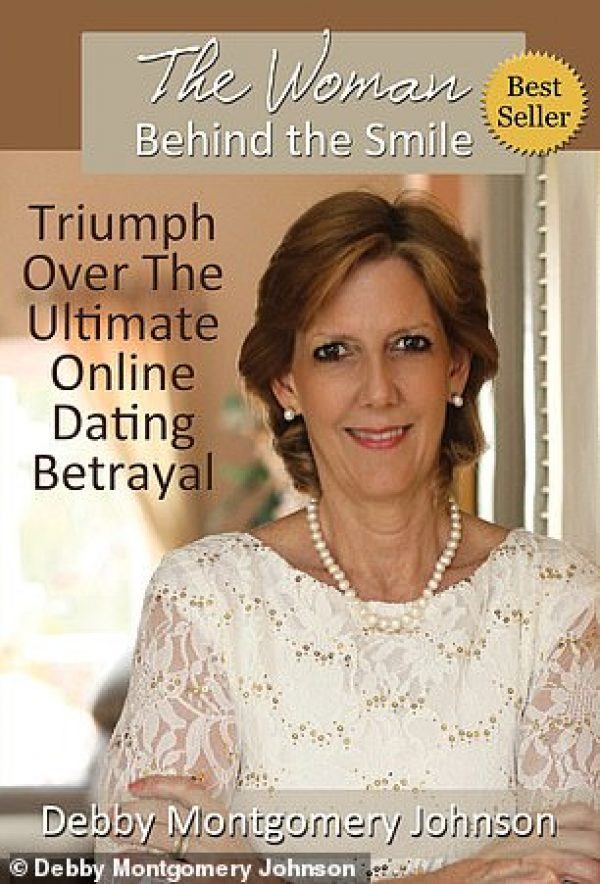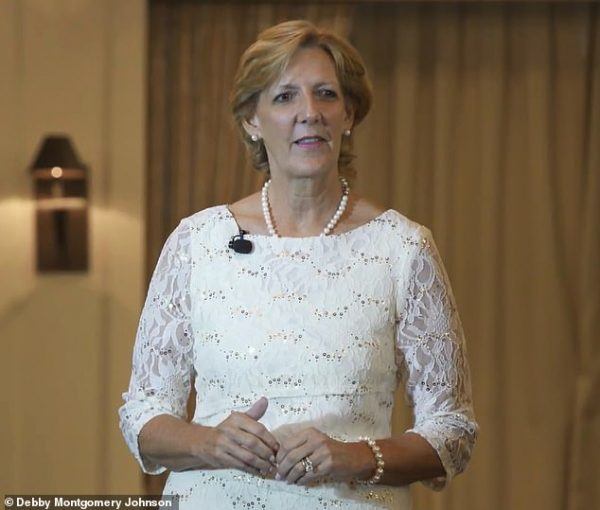A 60 year-old widow has just come forward to reveal how she lost $1 million through an online dating scheme by a man who claimed to be someone else as experts are warning that people lose thousands of dollars every year to romance fraudsters.
Debby Montgomery Johnson said that she was scammed out of around $1 million between 2010 and 2012 after she joined a Mormon online dating site. She had lost her husband of 26 years in 2010 suddenly from a heart attack, and her friends eventually convinced her to join an online dating site so that she could find love again.

“I’d never heard of anybody being taken by an online romance, I’d only heard the good stuff,” said Debby, a former paralegal who also worked as a bank teller and Air Force intelligence office. “So I kind of went into it trusting that what was going to happen would be good.”
Debby did not have any luck with her first few matches, but then she matched with an international businessman based in London who was also a widower. She researched the man and the company that he allegedly worked for, and the company seemed to be legitimate.
“I called the company he said he was a contractor for, and they didn’t know who he was,” Debby said. “But again, I wasn’t anticipating anyone not telling me the truth, so I just figured, well, he’s an international contractor, maybe they don’t have those guys listed on the company roster.”

The man, who said his name was Eric Cole, claimed he had just been living in Houston, Texas but had recently moved to Malaysia for work. Over the next two years, the couple communicated mostly on Yahoo Chat, and whenever they made plans to meet up, Eric would always cancel due to work. Other than that, Debby said that the two of them got along very well, so she didn’t think much of it when Eric asked her for financial help with his business.
At first, Debby said she made the odd payment of around $50 on Eric’s behalf because his foreign location meant that transferring money in the United States was trickier than normal. As time went on, Eric started asking for more money, but Debby wasn’t suspicious because they had grown closer. Eric had even introduced her to his sister and son via email.
“Eric became an important part of my life,” she said. “He became part of my family. And so I did everything I could to support him. It was really a great adventure. The only tiff we had at one point was where he had asked me for some money, and I got really uncomfortable with it, but I did it anyway.”

The first large check that Debby wrote to Eric was for $2,500.
“The next time he asked was because he was getting paid, but the money was coming here to the states, and he needed to have a power of attorney for the banks over in London,” she said.
Sometimes, Eric would use medical excuses as a way to ask for money, and other times he would just ask for loans.
“Looking back on it now, it was absurd,” Debbie said.
Before long, she had given him around $1 million from both herself and her parents, who were in their 80s. She had no idea that she was being scammed until he finally asked to video chat with her in 2012, and confessed everything to her.
“For two years, he’d told me he couldn’t Skype, he couldn’t do video, and now, he shows me how to enable the camera on Yahoo Chat,” Debby said. “I was sitting at my desk, looking at a picture of who I thought he was on my screen, and up pops this dark-haired, dark-skinned young man with a big smile on his face.”
The man posing as Eric had been living in Nigeria, not London. Though Debby reported him to the FBI, she was told that they could not do anything unless she convinced the scammed to come to the United States. She has since written the book “The Woman Behind the Smile” in the hopes of warning others about these kinds of scams.
“These guys are very well trained, and they are good at their jobs,” Debby said. “They’ve got the story down. They are not amateurs, and it’s unfortunate, because good people are being abused financially, socially, emotionally, and it’s really tough.”
The Federal Trade Commission says that they received an astonishing 21,000 reports in 2018 alone about romance scams with an estimated loss of $143 million collectively from the victims. Please be mindful about this before you start a relationship with someone online.
COMMENTS POLICY: We have no tolerance for messages of violence, racism, vulgarity, obscenity or other such discourteous behavior. Thank you for contributing to a respectful and useful online dialogue.